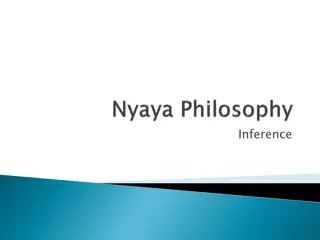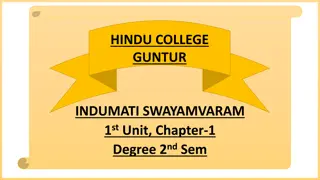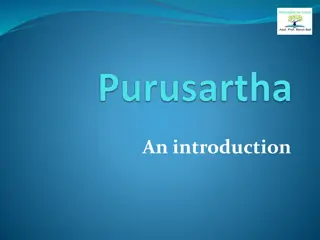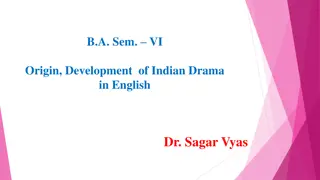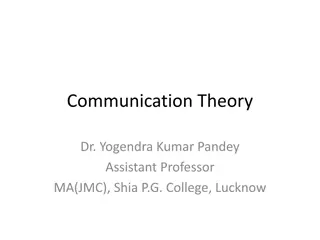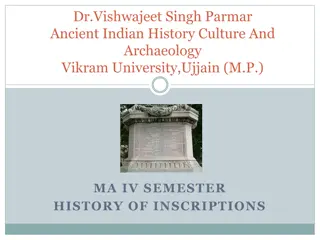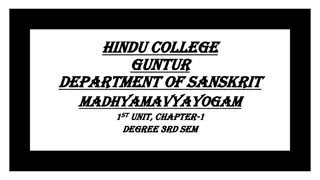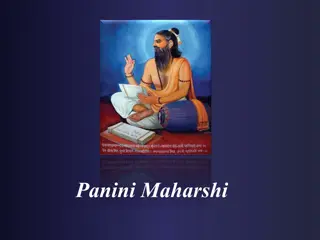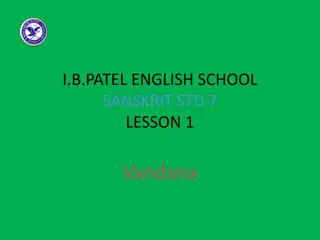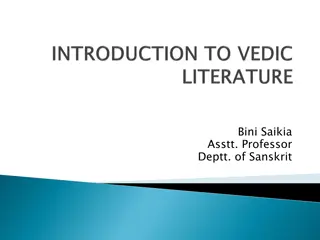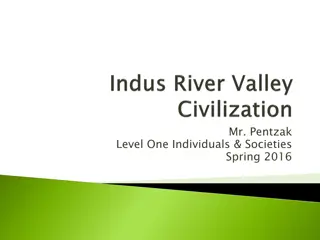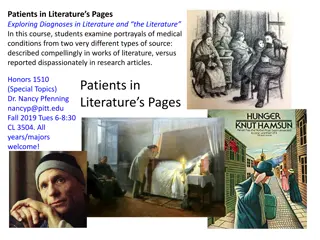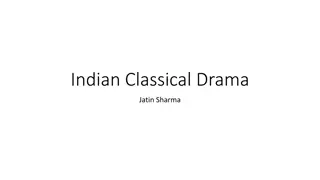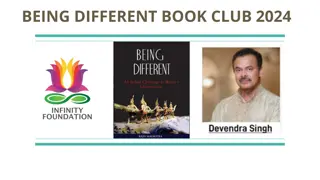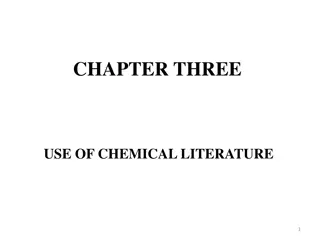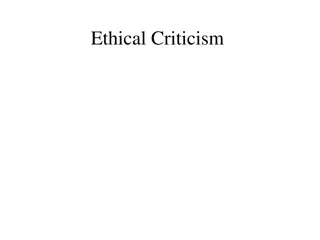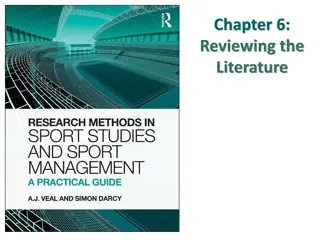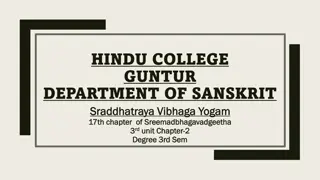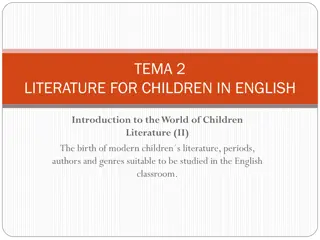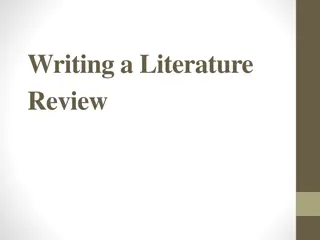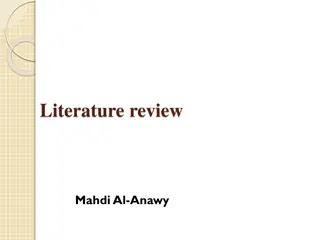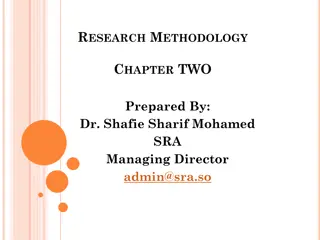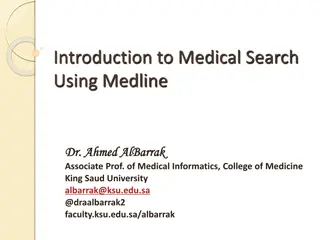Together with Best Question Bank for Class 9 CBSE 2024 Sanskrit (Shemushi) for n
Best Question Bank for Class 9 Sanskrit (Shemushi) for Session 2024-25 has been released. Question Bank for Class 9 CBSE 2024 based on latest syllabus includes Section-wise MCQs and Important Terms, Practice Questions, Practice Papers, Completely Solved NCERT Textbook Exercises and much more, Get co
0 views • 1 slides
Understanding Inference and Vyapti in Logic
Inference, known as Anumana in Sanskrit, is the process of deriving knowledge based on existing information or observations. It can be used for personal understanding or to demonstrate truths to others. An inference may be SvArtha (for oneself) or ParArtha (for others). Vyapti, the invariable concom
1 views • 14 slides
Biography and Works of Kalidasa: The Great Poet of Ancient India
Kalidasa, the revered poet of ancient India, is celebrated for his significant contributions to Sanskrit literature. Known for works like "Abhignana Sakuntalam" and "Raghuvamsam," Kalidasa's life and poetic genius continue to inspire scholars and enthusiasts alike. This biography explores his origin
5 views • 16 slides
Understanding Purusharthas: The Four Goals of Human Life
Purushartha, derived from Sanskrit, encompasses the four life goals of dharma (duty), artha (prosperity), kama (pleasure), and moksha (liberation). Dharma, the foundation, guides the pursuit of the other goals leading to spiritual fulfillment. While dharma is considered paramount, moksha is ideal, e
6 views • 17 slides
Prarthana Samaj
Prarthana Samaj, meaning "Prayer Society" in Sanskrit, was founded in 1867 by Atmaram Pandurang with the objective of promoting belief in one God and advocating worship of the same. The movement gained traction when Mahadev Govind Ranade joined, with intellectuals advocating social system reforms. I
5 views • 12 slides
Origin and Development of Indian Drama in English
Indian English Drama has a rich history, starting from the Sanskrit plays of the Vedic Age to prominent playwrights like Rabindranath Tagore and Sri Aurobindo Ghosh. The genre saw a resurgence in the 20th century with significant contributions from various playwrights marking its evolution through s
0 views • 8 slides
Effective Strategies for Literature Searches and Re-Use of Scholarly Literature
Conducting literature searches involves surveying existing publications and information on a specific topic. Different search strategies, from simple searches to systematic queries and snowballing, are utilized based on research needs. Learning objectives include building search strategies, using ad
3 views • 19 slides
Introduction to Isixhosa Language and Literature - Exploring Characters and Themes
This content provides an overview of Isixhosa as a first additional language (FAL) and delves into key aspects of literature such as character development and themes. It discusses the importance of characters in storytelling, emphasizing the significance of round and flat characters. The article als
3 views • 28 slides
Indian Theories of Communication: Understanding Sadharanikaran
Indian communication theories have deep roots in religious literature and fine arts, with concepts like Sadharanikaran emphasizing mutual understanding and commonness. This Sanskrit term reflects the essence of communication as a relationship based on shared feelings and culture, rather than persuas
1 views • 8 slides
Evolution of Inscriptions in Ancient Indian History
The evolution of inscriptions in ancient India reflects a shift from Prakrit to Sanskrit languages over the centuries, marking changes in content, purpose, and classification. Beginning with Brahmi inscriptions, the transition to Sanskrit gradually replaced Prakrit as the language of choice in North
0 views • 12 slides
Introduction to the Sanskrit Drama "Madhyama Vyayoga
A Brahmin named Kesavadas and his family encounter the demoness Hidimba's son Ghatotkacha while traveling to his cousin's thread ceremony. Mistaking Ghatotkacha for the God of Death, they seek help from the Pandavas who are residing nearby. Ghatotkacha tries to assure them of no harm, but the family
0 views • 11 slides
Comprehensive Literature Review Guidelines for Your Dissertation
Discover expert guidelines for conducting a thorough literature review in your dissertation. Explore topics such as literature search strategies, theoretical frameworks, review of the literature, synthesis, and analysis, with actionable tips provided throughout.
0 views • 11 slides
Exploring the Significance of Persian Language and Literature in Indian History
Persian language and literature hold a crucial place in Indian history, serving as a prime source for understanding the medieval period. Scholars in India have dedicated their lives to preserving and promoting Persian history, language, and literature. The rich cultural heritage of India, dating bac
0 views • 9 slides
Panini Maharshi: The Foremost Grammarian of Sanskrit Language
Panini Maharshi, the first and foremost grammarian of the Sanskrit language, is best known for his work Asthadhayai, a book on grammar which is highly revered among scholars and learners. His scholarly approach and foundational work in grammar have made him a prominent figure in linguistic studies.
4 views • 10 slides
Mastering the Literature Review Process
Understanding the significance of literature review, this guide emphasizes the essential steps involved in conducting a successful literature review - from planning and research problem identification to critical analysis and contribution to existing literature. It explains the importance of develop
0 views • 16 slides
Effective Strategies for Conducting Business Research Literature Review
This literature review provides insights into conducting business research effectively, covering topics such as how to search, read, and write literature reviews, along with the goals and types of literature. It emphasizes the importance of generating research ideas, demonstrating knowledge, and int
1 views • 13 slides
Devotion and Learning: Vandana in Sanskrit - Lesson 1 at I.B. Patel English School
Explore the essence of devotion and learning in Sanskrit with Lesson 1 at I.B. Patel English School. Dive into prayers to Goddess Saraswati, the significance of Sanskrit as the mother language, and invoking blessings for health, wealth, and wisdom.
0 views • 10 slides
Exploring the Vedas: Ancient Sanskrit Texts and Their Divisions
Diving into the roots of knowledge, the Vedas are ancient texts derived from the root meaning 'to know'. Various synonymous terms like ruti, tray vidya, gama, and chandas are used to describe these sacred scriptures. The Vedas consist of four main divisions - Rigveda, Samaveda, Yajurveda, and Atharv
0 views • 14 slides
Ancient Civilizations Studies and Group Activities
Explore the similarities between Mesopotamia and Ancient Egypt, make predictions about another ancient civilization, engage in group activities like reading chapters, answering questions, and playing Vocab Alive. Learn about key terms like Monsoon, Sanskrit, Caste System, and more. Collaborate in sm
0 views • 33 slides
Exploring Diagnoses in Literature and the Literature
This course delves into portrayals of medical conditions in literature versus research articles. It explores the intersection of science and literature, analyzing works like "Black Swan Green" and "The Reason I Jump" to understand how they depict conditions like stuttering and autism. Through studen
1 views • 28 slides
Evolving Perspectives on Literature and Translation
Explore the intertwined relationship between national literature, comparative literature, and world literature, delving into the evolution of translation studies. Reflect on the shift from national literary histories to world histories of literature, highlighting the significance of world literature
3 views • 54 slides
Insights into Indian Classical Drama and Literature
Explore the rich tradition of Indian classical drama and literature, from its origins in Ujjain during the Gupta period to the classification of major and minor dramas. Learn about the components of a classical Sanskrit drama, such as the plot, characters, sentiments, acting, and more. Delve into th
1 views • 9 slides
Hindu Upanayana Ceremony Explained
The Upanayana ceremony, also known as the Sacred Thread ritual, is a significant Hindu rite of passage for boys, akin to the Hindu Bar Mitzvah. It symbolizes the transition to youth and the beginning of a quest for knowledge of sacred scriptures. Over a two to three-day period, the ceremony includes
0 views • 15 slides
The Uniqueness of Sanskrit: A Cultural Journey Through Non-Translatability
Explore the depth of Sanskrit language and culture, delving into the significance of non-translatability. Discover how Sanskrit mantras hold the essence of creation and resistance against colonization, emphasizing the vibrational power within. Immerse yourself in the holistic experience of ancient w
0 views • 39 slides
Exploring Philosophy: The Love of Wisdom and Fundamental Questions
Delve into the world of philosophy with a focus on the love of wisdom. Explore the basic questions of reality, value, and knowledge. Uncover the branches of philosophy and concepts like metaphysics, epistemology, and axiology. Understand the Greek and Sanskrit roots of philosophical terms and their
0 views • 16 slides
Understanding Rasa Theory in Indian Theatrical Arts
Explore the significance of Rasa theory in Indian theatrical arts as outlined in the Natya Shastra, an ancient treatise on performing arts. Discover how bhavas create rasas, evoking emotions in the audience and transporting them to a parallel world of wonder and reflection. Learn about the historica
0 views • 18 slides
Understanding Devanagari Sanskrit Writing System
Explore the beauty and complexity of the Devanagari writing system used for Sanskrit and other Indic languages. Learn about its unique order of letters, aspirates, phonemes, and intricate vowel structures. Discover why Devanagari is a fascinating script to study and appreciate.
0 views • 8 slides
Heartwarming Appeal for Help in Sanskrit Poetic Verses
Poetic verses in Sanskrit language convey a heartfelt appeal for assistance and support. The verses express a deep yearning for aid and kindness, appealing to the emotions of the readers. The evocative language and poignant imagery enhance the emotional impact of the message, inviting empathy and un
0 views • 35 slides
Understanding the Importance of Chemical Literature in Research
Reviewing chemical literature is essential in the research process to identify existing knowledge, develop hypotheses, plan methodologies, and discover unanswered questions. The vast and complex nature of chemical literature poses challenges in finding relevant information, especially with evolving
0 views • 22 slides
Exploring Ethical Criticism and Literature's Human Possibilities
Ethical criticism in literary studies revolves around the intersection of ethics, literature, and criticism. It tackles concerns about the relationship between value judgments, ethics, and aesthetics, emphasizing the importance of reconnecting criticism with moral principles. Literature offers a dee
0 views • 21 slides
Understanding the Importance of Literature Review in Research
Exploring the roles of literature in research, this content emphasizes the significance of reviewing existing literature to gather ideas, compare methodologies, and integrate supportive information. It also highlights the types of reviews and essential questions to consider during the literature rev
0 views • 12 slides
The Status of Literature in Secondary Schools of the O.E.C.S. - Research Findings by Dr. Anthony Felicien
Research by Dr. Anthony Felicien examines the status of literature in secondary schools of the O.E.C.S., focusing on the decline of interest in literature among students, influenced by historical curriculum changes and parental attitudes. The study highlights the importance of studying literature fo
0 views • 35 slides
The Versatile Safflower: History, Uses, and Benefits
Safflower, known as "Kusumbha" in Sanskrit literature, is a member of the Asteraceae/Compositae family. It is a minor oil seed crop rich in PUFA, benefiting blood cholesterol control and cooking. The plant has a long history, dating back thousands of years and is valued for its oil, flower extract,
0 views • 27 slides
Hindu College Guntur Department of Sanskrit - Sraddhatraya Vibhaga Yogam Introduction
The introduction provides insights into the department of Sanskrit at Hindu College Guntur, highlighting the significance of Sraddhatraya Vibhaga Yogam and the 17th chapter of the Sreemadbhagavadgeetha. It explores the role of Vyasa in Hindu traditions and his association with the Mahabharata, shedd
0 views • 10 slides
Evolution of Children's Literature in English: From Alice to Modern Times
Explore the birth of modern children's literature starting with the publication of "Alice's Adventures in Wonderland" in 1865 by Charles Dodgson (Lewis Carrol), marking a shift towards entertaining and engaging literature specifically for children. Prior to this, children mainly read folklore and ad
0 views • 35 slides
Mastering the Art of Writing Literature Reviews
Understanding the essence of a literature review, its descriptive and analytical components, selecting key articles, and finding relevant sources are essential steps in crafting a comprehensive literature review. By integrating ideas from various sources and highlighting crucial findings, a literatu
0 views • 18 slides
Comprehensive Guide to Literature Review Process
A literature review is essential before conducting research to identify existing information, gaps in literature, major works, and relationships between studies and theories. Follow steps such as defining the topic, sourcing information, discussing findings, and drafting to write an effective litera
0 views • 8 slides
Effective Strategies for Conducting a Literature Review in Research Methodology
Understanding the importance of literature review in research methodology, this chapter discusses the objectives, aims, and guidelines for writing a comprehensive literature review. It emphasizes the significance of identifying gaps in existing knowledge, structuring the review, and organizing infor
0 views • 33 slides
GCSE English Language and Literature Overview
GCSE English Language and Literature subjects are led by Mrs. A. Baker and Mr. Doodson. English Language is examined by OCR, while English Literature is examined by Edexcel. Both subjects have two examination papers worth 100% of the grade. English Language papers focus on reading and writing skills
0 views • 14 slides
Effective Medical Literature Search Techniques by Dr. Ahmed AlBarrak
Dr. Ahmed AlBarrak, an Associate Prof. of Medical Informatics at King Saud University, provides valuable insights on medical literature search using resources like Medline. The content covers objectives of literature search, methods to find relevant literature, advantages of electronic journals, and
0 views • 39 slides

